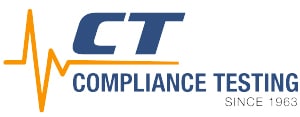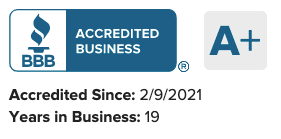FCC Certification Process
Nearly all products emitting radiofrequency energy must be tested and certified before being introduced into the US market. The Federal Communication Commission (FCC) is the independent agency of the United States government that regulates the radiation standards of electronic devices. The commission ensures radio devices being introduced to the market are not radiating at frequencies that harm and interfere with the surrounding environment, people, and equipment.
How to Get FCC Certification
As an accredited testing laboratory, we can test your electronic device and help you achieve FCC certification. Open since 1963, we have more than 60 years of experience in electrical device testing and have helped 100s of businesses achieve FCC certification for their devices.
Contact us using the form to the right or call our team at 866-540-5287 to request a free quote for your project or talk to our team of engineers and compliance specialists about FCC certification process.
If you need a reliable and experienced FCC certification and testing provider, contact Compliance Testing today. Compliance Testing is an accredited testing service tailored for all your device testing and compliance needs. We have over 50 years of experience providing exceptional compliance testing for FCC, IC, and CE marks for several manufacturers across the globe.
Our modern, well-equipped, and accredited labs help us offer a complete spectrum of testing relative to your product and certification needs. In addition, our technicians go through ongoing training to equip them with the latest industry trends and ensure they are privy to any new trends in the ever-evolving regulatory environment. If you need reliable certification solutions specifically designed to help you reach the market quickly and effectively, contact us today.
What Products Require an FCC Certificate?
All radio frequency (rf) equipment sold or distributed in the U.S. must go through testing to ensure they are compliant with the FFC standards under the EMC directive. The testing limits the intentional and unintentional electromagnetic radiation emitted from rf equipment to ensure all users are safe. Compliance Testing can help your company get an FCC certificate for various types of rf emitting devices such as:
- Wireless local area networking equipment
- Radio and telecommunications terminal equipment
- Blue tooth devices
- Walkie-talkies
- Mobile phones
- Electronic products
- Cordless telephones
- Remote control transmitters
- Power adapters
- Electromagnetic compatibility products
- Equipment and protective systems intended for use in potentially explosive
- Telecommunication equipment
- IT equipment
- Walkie talkies
Essentially, the products that need authorization can either be intentional or unintentional radiators of radiofrequency energy. Intentional radiators are products that must broadcast radio energy when in operation, for example, your smartphone.
The unintentional radiators create radio signals and broadcast them through power lines or space as an unintentional by-product of their operation. A good example of unintentional radiators of radiofrequency energy is a digital camera.
What Is the Process for Obtaining FCC Certifications?
The FCC authorization process begins once you are ready to mass-produce your devices. The devices are tested to determine if they can cause interference with other equipment and whether it is broadcasting in the suitable radio frequency range. It is also tested against other telecommunications requirements covered under the regulatory codes. The FCC categorizes digital devices into two testing classes:
- Class A testing: Class A testing covers devices typically used in industrial, commercial, and engineering settings.
- Class B testing: Class B testing covers consumer devices. The testing requirements for class B devices are typically higher.
The FCC certification process typically follows the procedure outline below:
Step 1 – Choose a radio frequency and design equipment
Start by researching frequencies that are legally open to you and your equipment. You can reference the FCC’s current guidelines on radio spectrum allocation when selecting radio frequency and design equipment. When choosing an ideal radio frequency and design equipment, keep in mind factors such as radio range, size, optimization, and power consumption.
Step 2 – Tests during development
During the product development, you can have Compliance Testing perform in-house pre-compliance tests. Although these tests may not count much at this stage, they ensure you won’t encounter any significant surprises later on in the course of product development and testing.
Step 3 – Register with FCC
You must have a free FCC Registration Number (FRN) for certification and authorization of radio spectrum devices. The FCC Registration Number (FRN) typically registers you with the FCC before presenting devices for FCC Grants. At Compliance Testing, we will obtain the FCC Grantee code (Company FCC Code) from the FCC on your behalf.
Step 4 – Compliance test
Once you have your FRN and grantee code, the next step is to deliver a production-ready prototype and its technical specifications to Compliance Testing for evaluations and applicable FCC testing according to the required FCC standards. You can have a representative witness the tests if you like, but it is not necessary. The testing process may run from a few days to a couple of weeks, depending on the product complexity.
Step 5 – Test report
Compliance Testing will then compile an FCC test report that shows your device has passed the required FCC tests meeting the FCC standard(s).
Step 6 – Documentation
You will then provide Compliance Testing with all appropriate documentation necessary for the FCC Filing. The FCC test report and the other documentation will be forwarded to our Telecommunications Certification Body (TCB ), who will obtain the grant.
Step 7 – Certification & Filing
Notably, the FCC made changes to the certification process in 2015 and no longer accepts direct applications for certification. The application for certification must now be submitted through a recognized TCB (Telecommunications Certification Body). Notably, Compliance Testing is accredited to ISO 17065:2012 TCB and is recognized by the FCC to accept applications for certification on its behalf.
As part of the last step of the testing and certification process, Compliance Testing’s TCB will send you a Grant of Equipment Authorization within a week or two. The Grant of Equipment Authorization allows you to market and sell your product in the U.S legally.
What Are the Benefits of FCC Certifications from Compliance Testing?
More comprehensive market access
The FCC certification can help you access a broader market. Essentially, the certification allows more people to trust your devices in terms of safety. The certification is considered permanent and thus does not expire, meaning an unaltered product doesn’t need recertification in the future for you to introduce it to the market.
Legal benefits
Essentially, you cannot introduce an electronic device in the U.S. market without an FCC certification. Devices that lack approval are considered public health risks and may attract litigation that attracts penalties and jail terms for manufacturers and distributors. However, with an FCC certification, you have a legal right to sell your products in the U.S. market.
Competitive advantage
The FCC mark demonstrates that a product is tested and verified. Because consumers prefer FCC-certified products over uncertified products, you gain a competitive advantage when your products go through the certification process.
Does an FCC Certification Also Count as Market Approval for Canada?
Before you market any radiofrequency device in Canada, it must pass the Innovation, Science, and Economic Development Canada (ISED) certification requirements. ISED is the body regulating radio standards of electronic devices in Canada. Typically, its technical requirements for market approval of products with radio technologies are in most cases identical to those of FCC. However, there exist a few additional certification requirements, including:
- The documents submitted to ISED must not be published on the website
- A model name called “HVIN” placed on the label is required in addition to the certification number. Manufacturers must also provide a marketing name for each device before approval is published on the website.
- You must have a local representative (LR) for your approval request to be accepted.
Compliance Testing offers testing services in Canada and other countries, including European Union, Australia/New Zealand, Korea, Japan. If the intended market for your devices is Canada or any of the mentioned countries above, contact us today to learn how you can benefit from our testing services. At compliance testing, we understand the regulations of each country, and we are committed to providing quick testing solutions for your products to get to the market quickly.
How Much Does FCC Certification Cost?
The cost of an FCC certification is determined by the radio tech and the number of test requirements covered by a lab. However, the average cost for a full receiver and transmitter testing for a single channel radio is around $5000. The cost of transmitter tests stands at an average of $3,500, while that of a receiver Declaration of Conformity is about $1,500.
How Long Will It Take Before I Get the FCC Certification?
The average industry time to get an FCC certification for the connected device is anywhere between 8 to 12 weeks. However, Compliance Testing can expedite this process by leveraging modern technologies that ensure you receive your certificates within 1 to 2 weeks.
Do Bluetooth Devices Need FCC Certifications?
All intentional devices, including Bluetooth and Wi-Fi transmitters, must have an FCC certification before entering the U.S. market. If you are bringing any product utilizing Bluetooth connectivity to the market, contact Compliance Testing today. We will help you meet all the FCC requirements so that you stay ahead of your competition.
Let Compliance Testing Help You Get Your Products to the Market Quickly
As an industry leader, we are committed to walking our clients through the entire process to ensure they can smoothly navigate the testing and certification process. Our experts have a deep understanding of all the markers required by various regulatory bodies and governments worldwide. We have the skills, expertise, and resources to guarantee exceptional product testing, compliance, and certifications. Contact us today to learn more.



